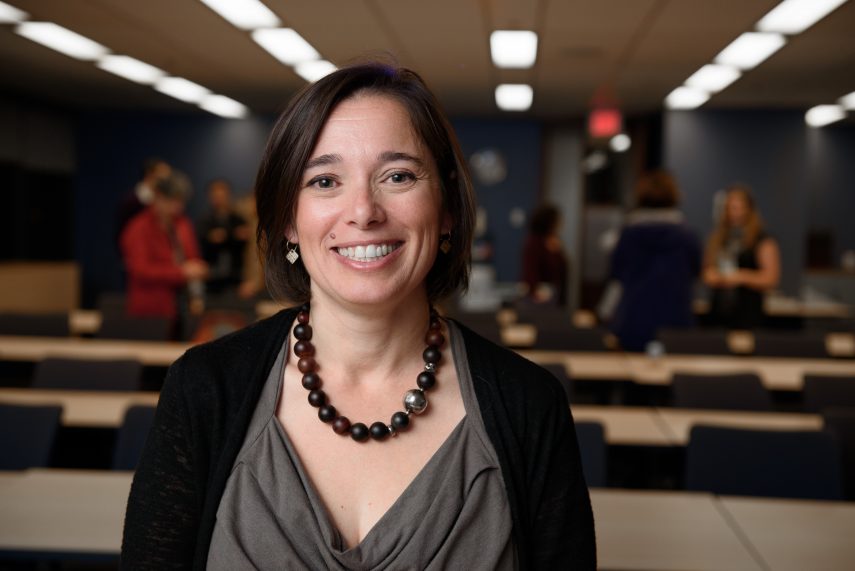“We are more than just our stories.” With those words, Isabel Jordan articulates why patients can and should be equal partners in their health care and why she has spent years advocating for a health care system that recognizes the contributions of patients.

Her journey to advance the patient voice began over 10 years ago, when her young son was found to have an undiagnosed rare disease. Facing several visits to the hospital and the hardships of fighting an unknown illness, Isabel and her husband learned through experience that they needed to advocate for their son to ensure his needs were met. At times, this involved speaking up and disagreeing with medical staff on the best course of treatment.
Her initial experiences with the health care system led Isabel to join a group created with her son’s medical geneticist to improve care. There were physicians, medical ethicists, geneticists and parents, all sharing their perspectives on how to improve the situation for patients with rare diseases. All members were respected and valued for their knowledge and the ideas they had for how to do things better.
Since that first experience, Isabel has volunteered in several different capacities to advance the patient voice and address challenges in the health care system. In 2008, she co-founded the Rare Disease Foundation – which she now chairs – motivated by the need to improve services for and advocacy on behalf of families affected by rare and undiagnosed diseases. The foundation offers a funding program for researchers who want to learn more about rare diseases, as well as the unique Peer2Peer Resource Network, a group of local forums for cross-disease information sharing and social support.
The forums provide a means of organizing families for mutual support, mentoring and knowledge sharing, allowing the community to undertake educational outreach and advocacy issues relevant to a wide spectrum of rare diseases. Isabel has been facilitating the Vancouver Parent2Parent Resource Network for the past eight years, and also helps to foster the growth of the Peer2Peer Network nationally. Through her work, she has helped other parents gain the skills and knowledge they need to be effective advocates for their children.
While taking care of her son and devoting countless hours to the Rare Disease Foundation, Isabel started the blog Modelling Change, where she writes about the importance of patient engagement and the need for changes in the health care system. She began to use social media, including Twitter where she has 3,300 followers, as a way to connect with other parents of children with rare diseases as well as a broader group of parents, patients, providers and researchers who want to advance the patient voice. She has also spoken at conferences across Canada and participates on numerous committees locally and nationally.
Isabel’s use of social media led her to discover international efforts to develop a more formal process for health care providers to involve patients in conferences and other learning opportunities. She joined other authors to craft the Patients Included™ charter, which offers health care providers a process for determining if they are authentically including patients in their events. She also co-authored a document to help academic journals demonstrate their commitment to incorporating the experience of patients as experts in living with their conditions, as well as a separate one for patient information materials.
It is difficult to fully separate the work Isabel has done to support and advance the patient voice from her leadership. Having a child with a rare disease is challenging enough and most parents would focus all of their available time and energy supporting their family. Isabel has done that, but she has also made a difference for others by creating a space for parents of children with rare diseases to learn how to advocate for their children and families and be equal partners in their children’s care. She advocates for patients across the world who want to work towards a system that partners with patients and families to include patient priorities in health care and research.

